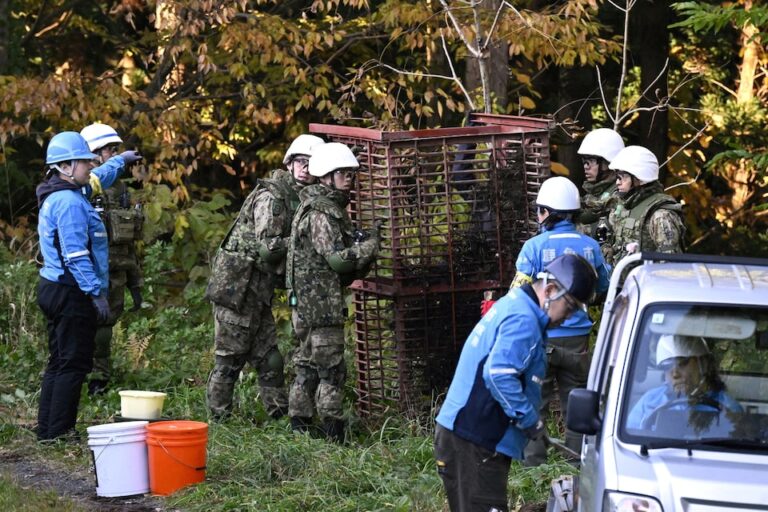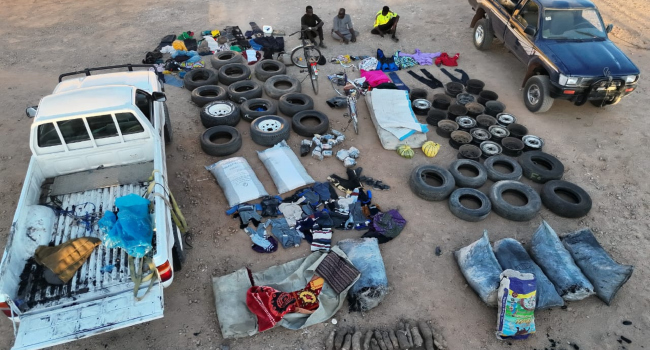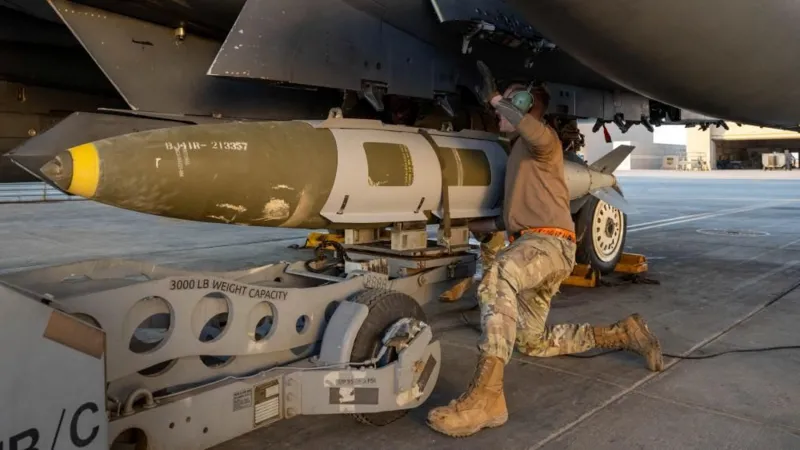Japan has deployed military troops to its northern region of Akita after a sharp rise in bear attacks left communities fearful and struggling to respond. The rare operation marks the first time in years that the Self-Defense Forces (SDF) have been called in to support wildlife control efforts.
Authorities in Kazuno, a small mountain town surrounded by dense forests, requested military support this week after bear sightings and attacks reached record levels.
According to Japan’s Environment Ministry, more than 100 people have been mauled by bears since April, with at least 12 fatalities, the highest toll ever recorded. Nearly two-thirds of the deaths occurred in Akita Prefecture and neighboring Iwate.
Local officials say bear sightings in Akita have surged sixfold this year to over 8,000. “The townspeople feel the danger every day,” said Kazuno Mayor Shinji Sasamoto, welcoming about 15 SDF soldiers who arrived Wednesday equipped with maps, protective gear, and trucks carrying steel-barred traps. “It has affected how people live their lives, forcing them to stop going out or cancel events.”
Read Also: China Supports Nigeria After Trump Threatens Military Action
The troops will assist local forestry officers in setting and inspecting traps used to capture the animals, which are later euthanized by licensed hunters. “Even if just temporary, the SDF’s help is a big relief,” said Yasuhiro Kitakata, head of Kazuno’s wildlife department. “I used to think bears would always run away at the sound of people, but now they come toward you. They’re truly frightening animals.”
Residents have been urged to stay indoors after dark and avoid wooded areas. Some schools have temporarily closed, and residents have taken to carrying bear spray or radios to scare the animals away.
Experts say the rising encounters are driven by shrinking natural food supplies, warmer weather patterns, and Japan’s aging rural population. Fewer hunters and depopulated villages have left communities vulnerable as bears search for food closer to towns.
“Last year there was an abundance of food in the mountains, and many cubs were born. This year, the food supply has run out,” Kitakata explained.
The central government plans to announce emergency measures later this month, Deputy Chief Cabinet Secretary Kei Sato said Tuesday. Steps will include recruiting more licensed hunters and easing firearm restrictions to allow quicker responses in populated areas.
“As bears continue to enter populated regions and injuries increase daily, we absolutely cannot afford to delay countermeasures,” Sato said at a press conference.
The SDF deployment in Akita will continue through the end of November, with troops scheduled to assist in nearby Odate and Kitaakita before returning to base. Officials hope the move will ease public fear and prevent further casualties as the animals intensify their search for food before winter hibernation.










